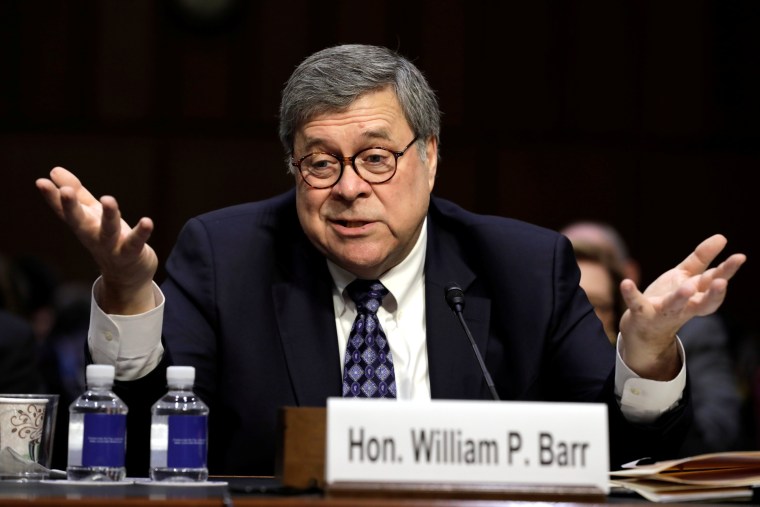The Senate Judiciary Committee yesterday took up William Barr's nomination to serve as attorney general, but as the hearing unfolded, it was clear one topic would dominate the others.
Attorney General nominee William Barr spent nearly nine hours Tuesday answering questions about Robert Mueller's investigation at his Senate confirmation hearing, seeking to assuage Democratic concerns about his views of the Russia probe.Democrats on the panel spent Tuesday's hearing probing his views on Mueller's investigation into Russian election interference.
On the surface, Donald Trump's nominee to lead the Justice Department delivered answers that seemed vaguely reassuring: Barr expressed a deep admiration for Mueller; the Republican lawyer dismissed the president's assertions that the investigation into the Russia scandal is a "witch hunt"; and Barr made clear that he believes the Mueller investigation must be allowed to continue until its completion, and would have the resources necessary to do so.
To a very real extent, each of these positions puts the attorney general nominee at odds with the White House.
But it's the caveats that matter. For example, Barr wouldn't commit to releasing a Mueller report at the end of the investigation. In fact, at one point, he seemed to raise the prospect of receiving a possible report from Mueller, which Barr would then summarize for Congress.
What's more, if career ethics officials at the Justice Department advised Barr to recuse himself from overseeing the investigation, Barr said he'd be comfortable ignoring the guidance -- and keeping their advice hidden.
None of this was reassuring, especially in light of the hearing's backdrop. Remember, we first learned last month that the president approached Barr about possibly joining his legal defense team. It raised the prospect of Barr familiarizing himself with Trump's legal position in response to a special counsel investigation he would oversee if confirmed.
Two weeks later, the Wall Street Journal reported that Barr took it upon himself to send the Justice Department an unsolicited, 20-page document, condemning the special counsel's efforts as, among other things, "grossly irresponsible" and opening the door to "potentially disastrous implications."
Yesterday, he nevertheless vowed to be responsible while overseeing the investigation he's already denounced.
Some political realism is in order: this is a Senate led by a 53-seat Republican majority, and the odds of four GOP senators breaking ranks and opposing Barr's nomination are poor. He acted yesterday like he expects to be confirmed, and his confidence is understandable given the circumstances.
But for those concerned about the future of the Mueller investigation, it's hard to see any of this as good news.
